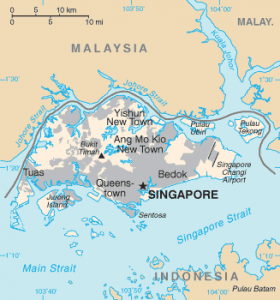
[ad_1]

Singapore has eliminated measles, and Australia, Brunei Darussalam and Macao SAR (China) have eliminated rubella as public health problems, the World Health Organization (WHO) announced today.

Both viruses are highly contagious, but their spread is preventable with safe and cost-effective vaccines. Initial symptoms for both include fever and rash. But measles can be deadly, causing devastating health complications, such as pneumonia, blindness and brain damage, especially among children. Rubella, also known as German measles, is particularly serious for pregnant women. Infection can lead to miscarriage or birth defects, including blindness, deafness and heart disease.
Historically low levels of measles were recorded in the Region in 2012, then a resurgence of cases and deaths occurred from 2013 to 2016.
In October 2017, all 37 countries and areas in the WHO Western Pacific Region—which spans from China and Mongolia in the west to French Polynesia and New Zealand in the east— committed to eliminate measles and rubella as soon as possible with the adoption of a regional strategy and plan of action.
That same year, intensified efforts led to a drop in both diseases to the lowest levels on record in the Region—5.2 cases of measles and 2.45 cases of rubella per million people—a testament to the power of strengthened immunization programmes, disease surveillance and laboratory capacity.

Today’s announcement brings the total number of measles-free countries and areas in the Region to nine: Australia, Brunei Darussalam, Cambodia, Hong Kong SAR (China), Japan, Macao SAR (China), New Zealand, the Republic of Korea and Singapore. Among these, five have also stopped transmission of rubella: Australia, Brunei Darussalam, Macao SAR (China), New Zealand and the Republic of Korea.
“I’m delighted to be able to make this announcement today,” said Dr Shin Young-soo, WHO Regional Director for the Western Pacific. “It goes to show that when countries have strong immunization programmes that protect against both these viruses, surveillance systems to detect them, and laboratories to test and confirm diagnoses, they can eliminate measles and rubella.”
“But we must not let down our guard,” he cautioned. “Countries still working towards elimination should further strengthen control efforts. Even in countries that have achieved elimination, the job is not done. They must remain vigilant, continue improving vaccination rates and catch any imported cases to ensure these diseases cannot spread again.”
Source link